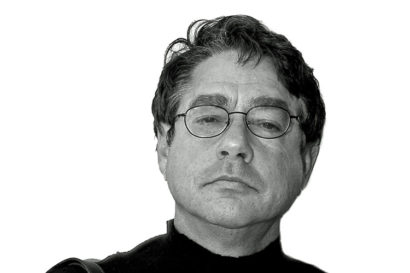Mel Gordon, professor, director and writer: 1947-2018
Theater scholar and expert in Stanislavsky and acting theory dies at age 71
April 9, 2018
Melvin Gordon, a multifaceted theater scholar who was a world expert in Stanislavsky and acting theory, died on March 22 in Richmond, California, due to complications of renal failure. He was 71.
Gordon spent much of his career at UC Berkeley’s Department of Theater, Dance, and Performance Studies (formerly the Department of Dramatic Art) as a faculty member from 1990 to 2015.
While at Berkeley, the inquisitive and light-hearted Gordon was known for lively and provocative undergraduate teaching, which included theater history, playwriting, acting and a very popular course on bad acting. He also taught about less-studied theater traditions in circus and Yiddish theater.
Gordon’s wide range of publications included books and articles on Commedia dell’arte (Lazzi); Yiddish theater; the Grand Guignol (1988/1997); and a number of more or less sensational aspects of German popular and political culture of the 1920s and 1930s: Voluptuous Panic: The Erotic World of Weimar Berlin (2000); Erik Jan Hanussen: Hitler’s Jewish Clairvoyant (2001) and The Seven Addictions and Five Professions of Anita Berber (2006).
More recently, he wrote about his ongoing study of bad acting and was working on a new project about fascist love cults from 1922 to 1942.
Gordon also wrote film scripts, conducted many interviews on radio, TV and YouTube and contributed numerous encyclopedia and museum entries. Occasionally he put his knowledge of acting theorists and European theater into practice while directing his own productions, in New York City, San Francisco, Los Angeles and — early in the 1990s — on the Berkeley campus.
Born on Feb. 18, 1947, in Detroit, Gordon was raised by what he referred to as left-wing politically radical parents who encouraged free-thinking and critical curiosity. He was an undergraduate at the University of Michigan, and earned a Ph.D. from New York University in theater history, directing, acting theory and practice.
Gordon taught acting from the late 1970s to early ‘80s at the Lee Strasberg Institute of Acting and then at the Michael Chekhov Studio in New York City. He became an assistant professor and then a tenured associate professor at NYU before coming to Berkeley in 1990.
Early in his career, Gordon established himself as a world expert in Stanislavsky and acting theory with his book The Stanislavsky Method (1988) and his essay “Nine Misconceptions about Stanislavsky and his Method.” He also worked extensively on the techniques of Vsevolod Meyerhold, and co-authored a book called Meyerhold, Eisenstein, and Biomechanics (1996). He continued to lecture and write extensively on these topics, building on his distinctive and rare array of knowledge concerning Russian and East European theater, movies and actor training of the early 20th century.
At an event honoring Gordon’s retirement in 2015, Berkeley colleague Mark Griffith, recalled, “Mel seems to have been everywhere where anything theatrical ever happened; and to have spoken directly to almost everyone who ever did anything interesting in the theater.”
Similarly, Margaret Fisher, a former Ph.D. student of Gordon’s, recalled his resourcefulness and dedication, his inspiration and friendship: “The future of theater, as Mel knew, requires that we confront its feverish distortions, sensuality, tension, violence, and thrills — then, and now. As intellectual, teacher, actor, and director, Mel kept all four engines going at full throttle.”
Gordon is survived by his brother, Norman Gordon of Prescott, Arizona. A memorial service is being planned. For updates, check the Department of Theater, Dance and Performances Studies website.
